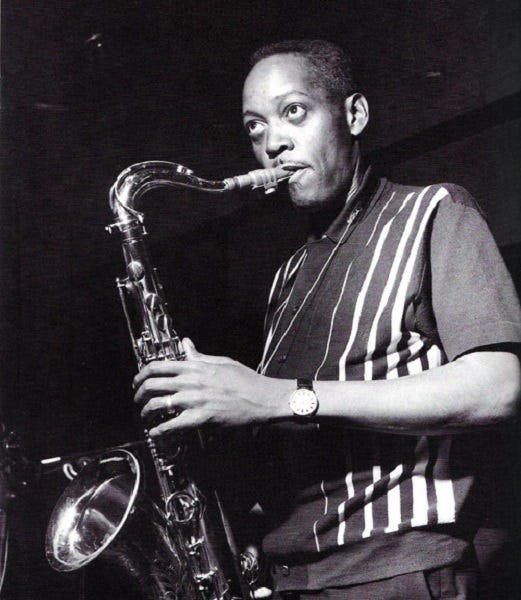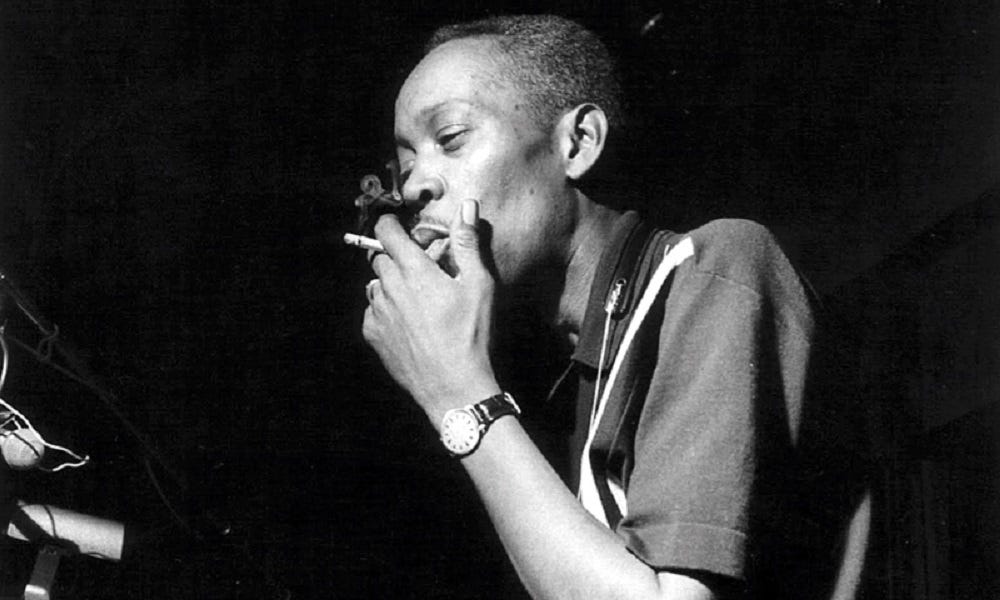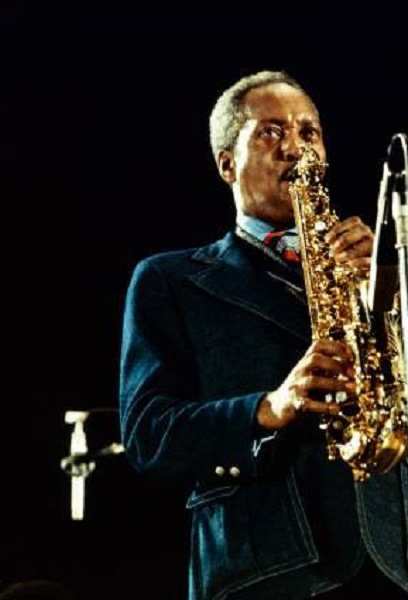Sonny Stitt (February 2, 1924 – July 22, 1982) – A Crazy Mixed Up World (1974)
For the prolific saxophonist's jazz-funk flavored Satan LP, keyboardist Roland Hanna wrote this epic, beautiful jam, with strings and horns arranged by Wade Marcus.
View most updated version of this post on Substack
Search our full archives
The great saxophonist Sonny Stitt began recording in the 1940s and appeared on over 100 albums as leader and sideman during his four-decade long career. We would be celebrating his 100th birthday right now if he hadn’t departed much too soon at age 58.
Born in Boston and raised in Saginaw, Michigan, Sonny started learning to play the piano, clarinet, and alto sax when he was seven years old. According to his daughter Katea, his mother “would drive him to Detroit from Saginaw so that he could play gigs as a teenager.”
During the 1940s he played alto sax in several big bands including Billy Eckstine’s alongside Dexter Gordon and Gene Ammons. In 1945 he joined Dizzy Gillespie’s band. The following year he formed a quintet called the Be-Bop Boys along with Kenny Dorham on trumpet and Bud Powell on piano, and saw his first composition recorded. “Good Kick” (1946) was issued as a B-side on Savoy Records. They had formally changed their name to the Sonny Stitt Quintet by 1948 when they put out another track he wrote, “Seven-Up.”
For more on his early career, see the excellent Jazz Journal article “Sonny Stitt: the early years, 1941-1952” by UK jazz writer Gordon Jack.
In 1955, he recorded an album backed by an orchestra arranged and conducted by a rising star named Quincy Jones. One of its highlights was the upbeat cut “Sonny’s Bunny,” which Stitt wrote. It was one of Jones’ earliest sessions as an arranger and conductor, released the same year as his own debut LP, Jazz Abroad, which he recorded with drummer Roy Haynes.
Stitt recorded three studio albums in 1971, all of them produced by Bob Porter at Van Gelder Studio. The first was Turn It On!, recorded in early January. It featured Leon Spencer Jr. on organ, who wrote three of the LP’s five tracks, including its ultra-funky title track and the swinging jam “Miss Riverside.” Other players were Virgil Jones on trumpet, Melvin Sparks on guitar, and Idris Muhammad on drums.
Next came You Talk That Talk!, recorded on February 8, an album with his old friend Gene Ammons. The two of them staged many legendary live sax battles in concert appearances around this time.
Finally, that July Stitt rejoined the same lineup that played on Turn It On! (with the addition of organist Don Patterson on two tracks) and recorded Black Vibrations. The stellar opening cut “Goin' To D.C.” set the LP’s funky tone, written by Spencer, who also penned the mellow masterpiece title track. The beautiful slow jam “Where Is Love?” was a cover of a song from the musical Oliver!, and its closing cut “Them Funky Changes” lived up to its name.
In 1972, Stitt contributed a beautiful sax solo to Betty Everett’s recurring theme song from Black Girl, an independent film released that November. It was directed by Ossie Davis, and starred Leslie Uggams and Louise Stubbs.
Stitt was exploring jazz-funk sounds on several of his early seventies albums, and in 1974 released one of his all-time funkiest. Satan was produced by Esmond Edwards, who started out as a photographer but became a producer and executive at Prestige Records, with strings and horns arranged by Wade Marcus.
Besides Stitt on alto sax, it included keyboardist Roland Hanna and Jimmy Johnson on drums. Guesting on some tracks were guitarists Billy Butler, Elliott Randall, and John Tropea, and legendary bassists Richard Davis and Ron Carter.
The stellar funky workout “Big Bad Henry” was written by Hanna, who played electric piano on the LP.
He also wrote the superb jam “Anone,” and the album’s masterpiece, the beautiful, epic “A Crazy Mixed Up World.” The latter featured cellists Kermit Moore and Seymour Barab, plus an additional six-piece string section of violas and violins.
Happy Heavenly Centennial to the great Sonny Stitt.
Further info:
“Stitt Strikes Back,” by Sonny Stitt, as told to Les Tomkins, SonnyStitt.com, 1965.
“Sonny Stitt, Saxophonist, Is Dead,” obituary, The New York Times, July 24, 1982.
“Sonny Stitt: the early years, 1941-1952,” by Gordon Jack, Jazz Journal, May 20, 2020.
“Sonny Stitt played globally with jazz greats. Is he underappreciated in his hometown, Saginaw?,” MichiganLive.com, February 1, 2023.
#jazz #SonnyStitt







